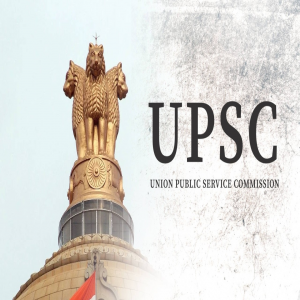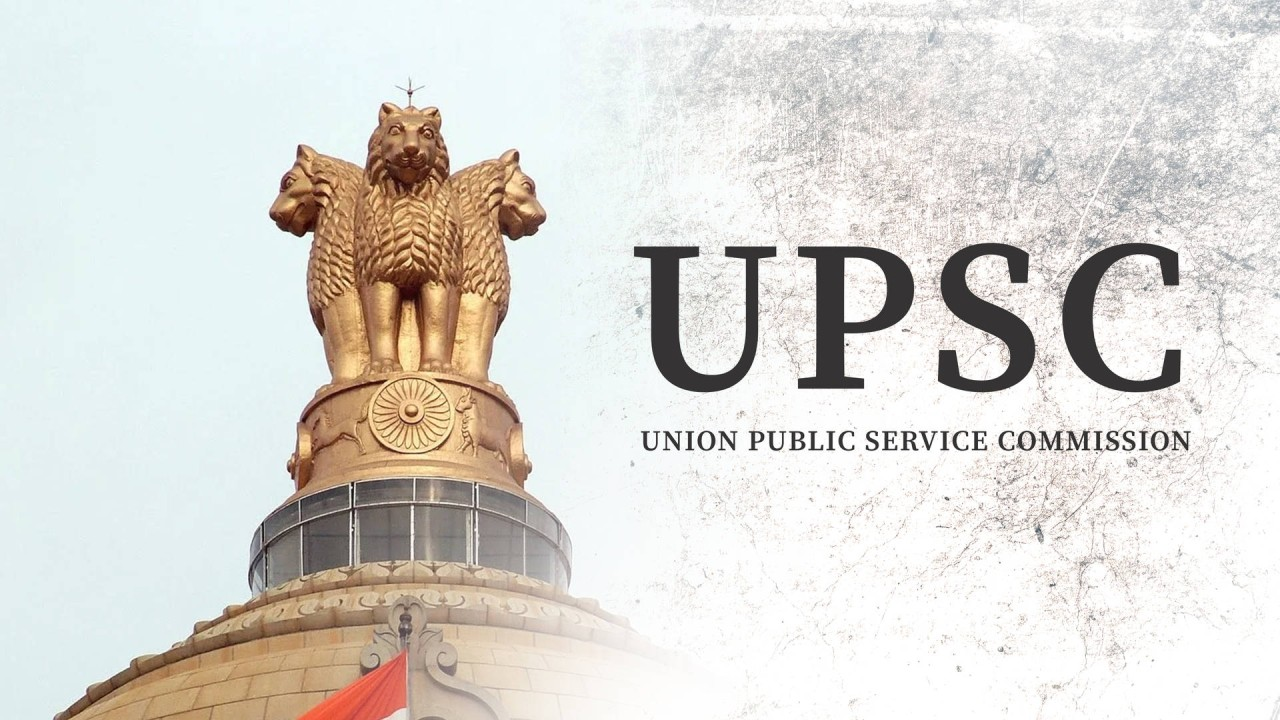

A government is run by bureaucracy, a body of professional officials with permanent tenure governed by the principle of hierarchy and neutrality. They are the backbone, called 'a steel frame', of Public Administration. They constitute the permanent executive vis-à-vis the temporary political executive, which provides continuity to the administration. In the Government of India, the bureaucracy refers to the Civil Services, made up of All India Personnel and Central Civil Services. They are recruited on merit through an open all-India competitive examination conducted by the Union Public Service Commission (UPSC), a constitutional body.
The bureaucracy runs the administration by observing a standard operating procedure, as laid down by impersonal rules and procedures, so that public services are provided to people without discrimination on any ground in a fair and just manner. Unfortunately, these days, the senior bureaucrats involved in policy decision-making have mastered the art of appeasing political masters due to a corrupt and politically intimidating environment to curry favours. They mortgage their integrity and bring discredit to the administrative apparatus. Look at how the top officials in the CBI, ED, IT, etc., crawl and carry the political agenda of the ruling dispensation against its political rivals. It is a very disgraceful scenario.
The NITI Aayog, in its three-year Action Agenda, and the Sectoral Group of Secretaries on Governance, in its report submitted in February 2017, recommended the induction of personnel at middle and senior management levels in the central government. These are called 'lateral entrants' and would be part of the Central Secretariat, which, in the normal course, only has career bureaucrats from the All-India Services and Central Civil Services.
Since 2019, some 63 appointments have been made through the lateral entry. On August 17, 2024, the UPSC issued an advertisement inviting applications to appoint 45 joint secretaries, directors and deputy secretaries in various ministries of the Government of India. A Joint Secretary, appointed by the Appointments Committee of the Cabinet, has the third highest rank after Secretary and Additional Secretary in a Department and functions as the administrative head of a Wing in the Department. He is involved in the policy decision-making process. Directors rank below the Joint Secretary, and the Deputy Secretary ranks below the Director. These posts are usually filled by officers of the IAS, the IPS and Group A Central Civil Services.
Before 2014, experts were appointed as advisors and consultants, as is the case. They were neither part of the bureaucracy nor appointed through the UPSC. Former Union Law Minister Veerappa Moily, who headed the Second Administrative Reforms Commission in 2005, says that the lateral entry suggested by the Commission was not meant to bypass the usual government recruitment process or for any political reason. This is the first time that such appointments have been made by the UPSC on a large scale in the name of lateral entry to avail of what the government says are the services of experts.
It is an extra-constitutional exercise. It goes against the existing recruitment policy, altering the very structure and composition of the bureaucracy. There are nearly 50 'A' Grade Central Civil Services, in addition to the All-India Services like the IAS and the IPS, providing specialised services in the Government of India. Then why have the lateral entry policy? This will limit the promotional opportunities for career civil servants to occupy the senior administrative positions of joint secretaries, directors and Deputy Secretaries after 20-25 years of service, with outsiders appointed on contract becoming their administrative heads, though it may be for a period of 3-5 years. This will demotivate and dissuade lakhs of promising young people who aspire to crack the prestigious Civil Services Examination.
Congress President Mallikarjun Kharge calls the lateral entry policy "an attack on the Constitution" and charges that the government "had eliminated 5.1 lakh posts in the past 10 years by selling the shares of the government in public sector undertakings, instead of filling vacancies… casual and contractual recruitment had increased by 91% and posts for Scheduled communities and Other Backward Classes decreased by 1.3 lakhs by 1922-23" (The Hindu 20/8/24). He alleges that "the SC, ST, OBC, EWS posts will now be given to people of the RSS." The concern that the administrative positions in the Central government could be filled by the people owing allegiance to the RSS cannot be ignored in view of the ban on civil servants from participating in the activities of the RSS without inviting any disciplinary action under the Conduct Rules lifted by the directive of the Department of Personnel and Training (DoPT), Government of India, issued on July 9 2024. This will lead to the saffronisation of Civil Services.
The lateral entry could result in a conflict of interest. The private interests of outsiders could conflict with the public interests, influencing decision-making. Take the case of SEBI Chief Madhabi Buch. She was the first private person to Head the SEBI. Her role as the regulator of the Capital Market was seriously compromised, going by the revelations of the Hindenburg Report—a prime example of what a representative of corporates could do by occupying a key government position.
Lakhs of jobs are lying vacant in various departments of the Government of India. If these posts are filled, the issue of manpower shortage could be addressed, besides making the bureaucracy more efficient in discharging its duties towards the citizenry. The Opposition accuses that one of the reasons for not filling these posts is that the government doesn't want to appoint persons with SC, ST, and OBC backgrounds into the government service, as mandated by the reservation policy.
The lateral entry is a "Privatisation of the IAS (Indian Administrative Service)," says Rahul Gandhi, the Leader of the Opposition in Lok Sabha. He says, "Reservation of SC, ST and OBC classes is being openly snatched away by recruiting through lateral entry on important posts in various Ministries of the Central Government… the underprivileged are not represented in all the country's top posts, including the top bureaucracy. Instead of improving it, they are being pushed further away from the top posts through lateral entry. This is a robbery of the rights of talented youth preparing for UPSC and an attack on the concept of social justice" (The Hindu 19/8/24).
The INDIA bloc attacked the UPSC Notification for lateral entry. Some NDA allies of the government also criticised the policy. This forced the Union Minister, Jitendra Singh, to write to the Chairperson, UPSC, Preeti Sudan, on August 20, 2024, asking her to withdraw the Notification, citing "the constitutional mandate towards social justice" for "rightful representation" of marginalised communities in government services.
However, as per a report in The India Express on August 22, when the policy of lateral entry was decided in 2018, the issue of reservation was sidestepped on the ground that "each post to be filled up under this scheme is a single post where reservation does not apply." And "the DoPT argued that under the lateral entry scheme, each post needs special qualification and experience to suit the requirement of each department where the post is to be filled up." That is how as many as 63 posts have been filled to date under the lateral entry scheme. This U-turn of the government is explained by the compulsions of a coalition government and the strong and effective Opposition, and not due to any genuine concern for the underprivileged.
The policy of lateral entry is not withdrawn. It is a double whammy – first, politicisation of institutions and then privatisation. The bureaucracy, like other institutions that have been politicised, is now being privatised, with the entry of outside private individuals with their own biases and prejudices. The lateral entry is an attempt to undermine the autonomy of the UPSC as the principal recruiting body of the Union Government and ipso facto reduce the role of Bureaucracy in Public Administration. The poor and marginalised sections of the population will find essential public services unreachable. The indiscriminate privatisation has already made education and health unaffordable and inaccessible to a large section of people.
We need lateral thinking, not lateral entry, says a former Cabinet Secretary KM Chandrasekhar: "The government perceives lateral entry as a panacea for all administrative ills...Strangely, the government still cannot understand that public administration is far removed from corporate governance...Maximum profit and increasing stock values are the objectives that corporate managers pursue... The assumption that the governmental system can be set right by importing corporate employees or appointing consultants experienced in corporate governance is wholly misplaced." Checking corruption and providing an effective supervision and control mechanism could make the bureaucracy more efficient, responsive and accountable.